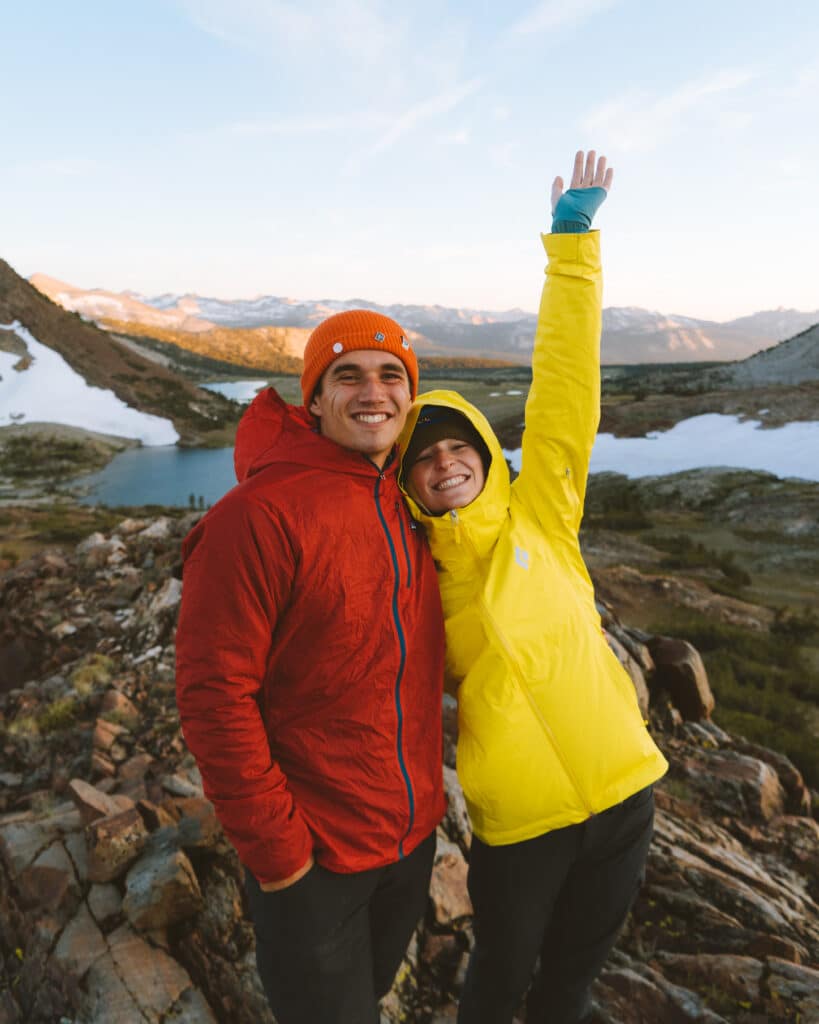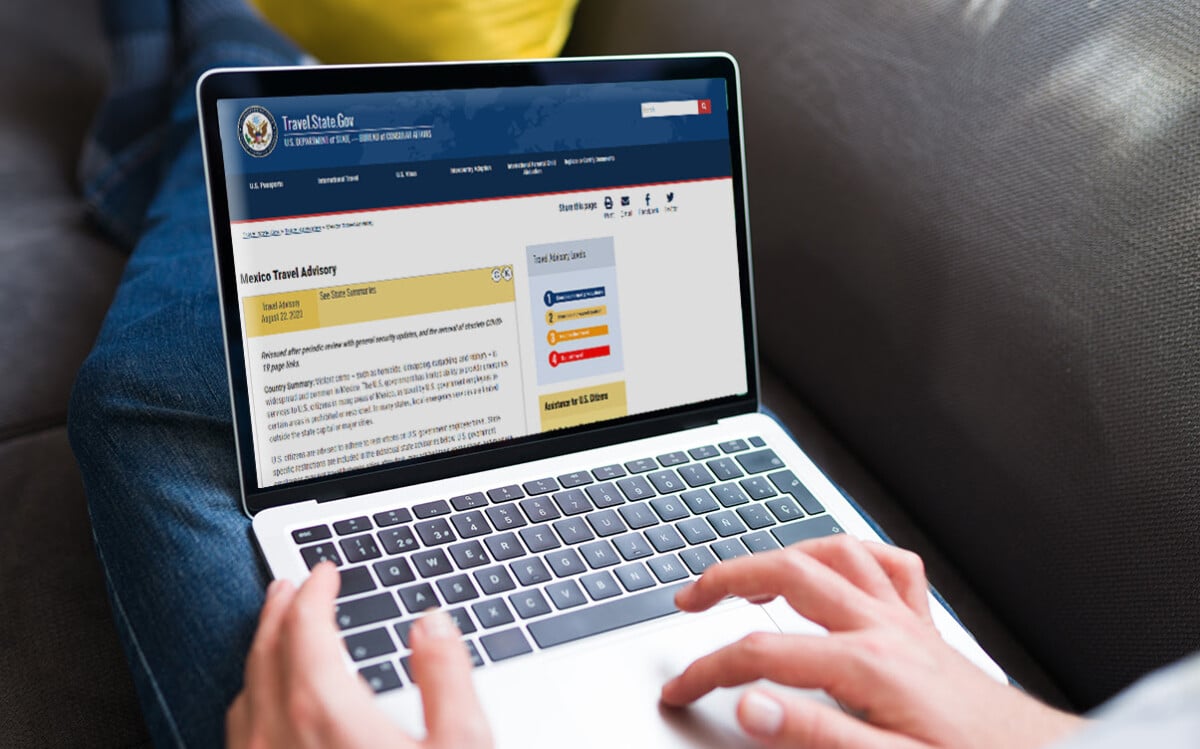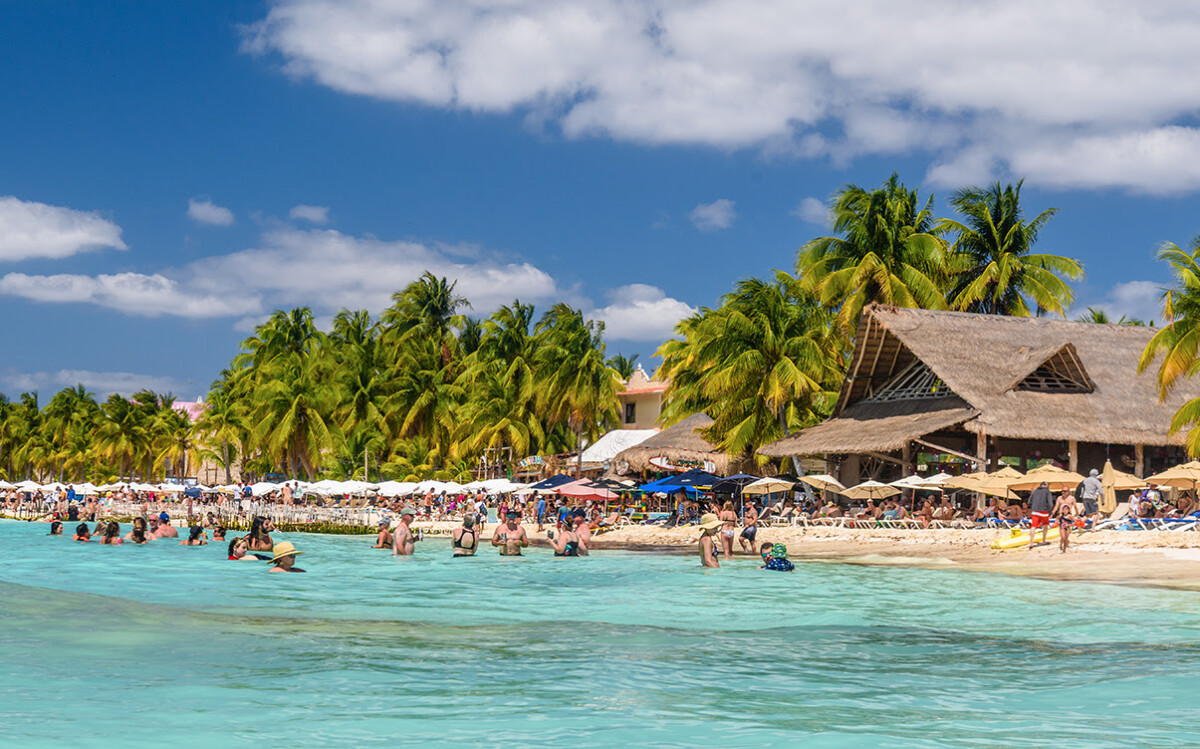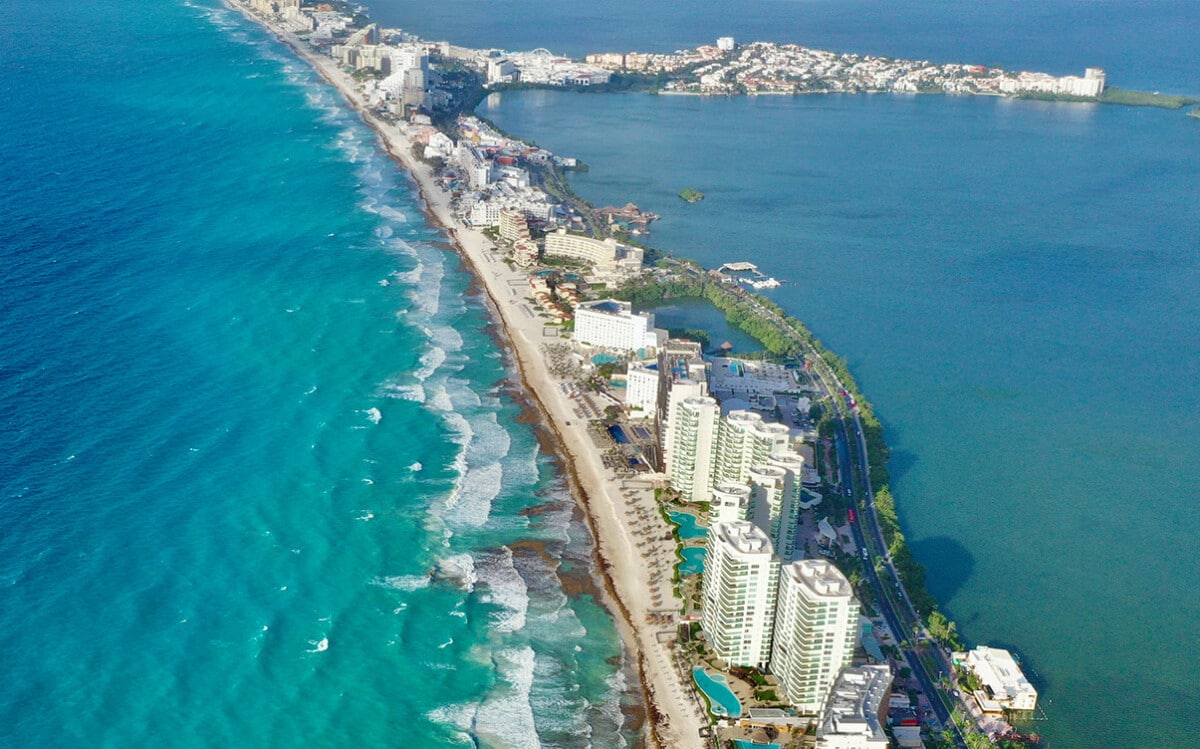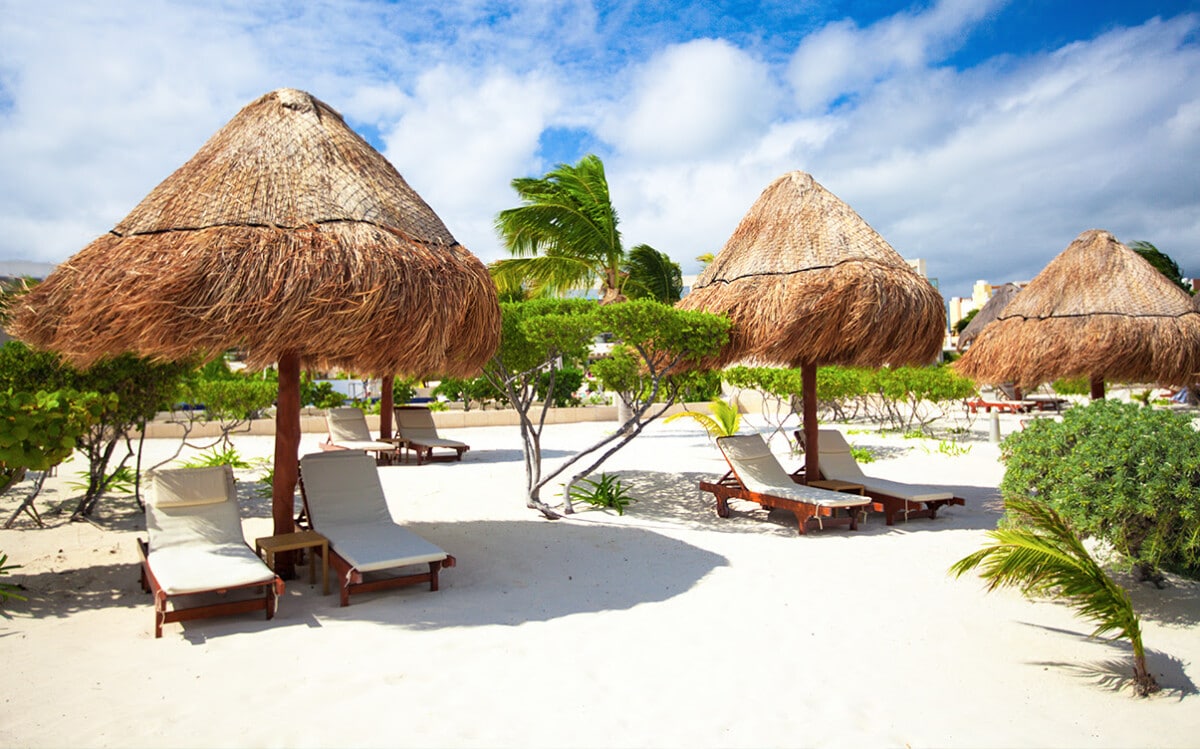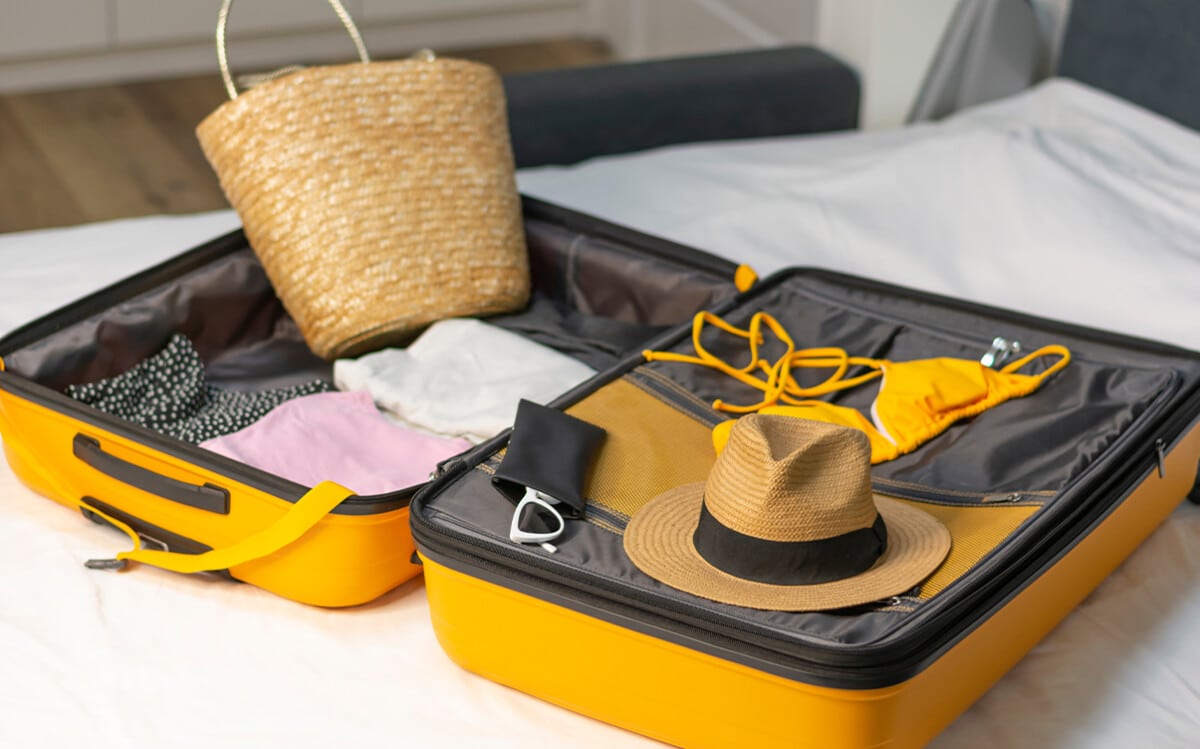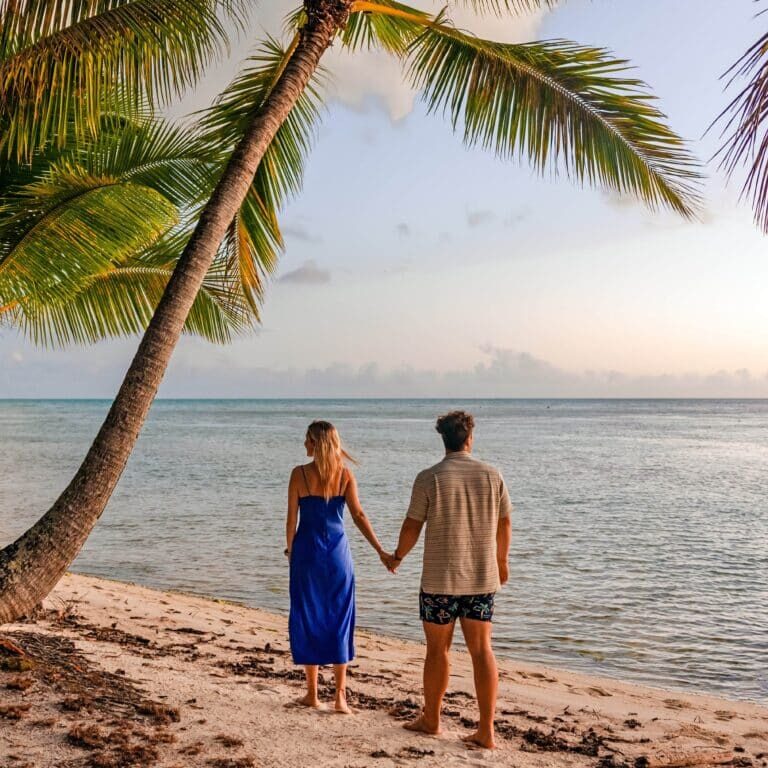Is Cancun Safe to Travel to in 2024? Stats, Warnings, & Advice
Disclaimer: This post may contain affiliate links. Please see our Disclosure Policy and Advertiser Disclosure for details.
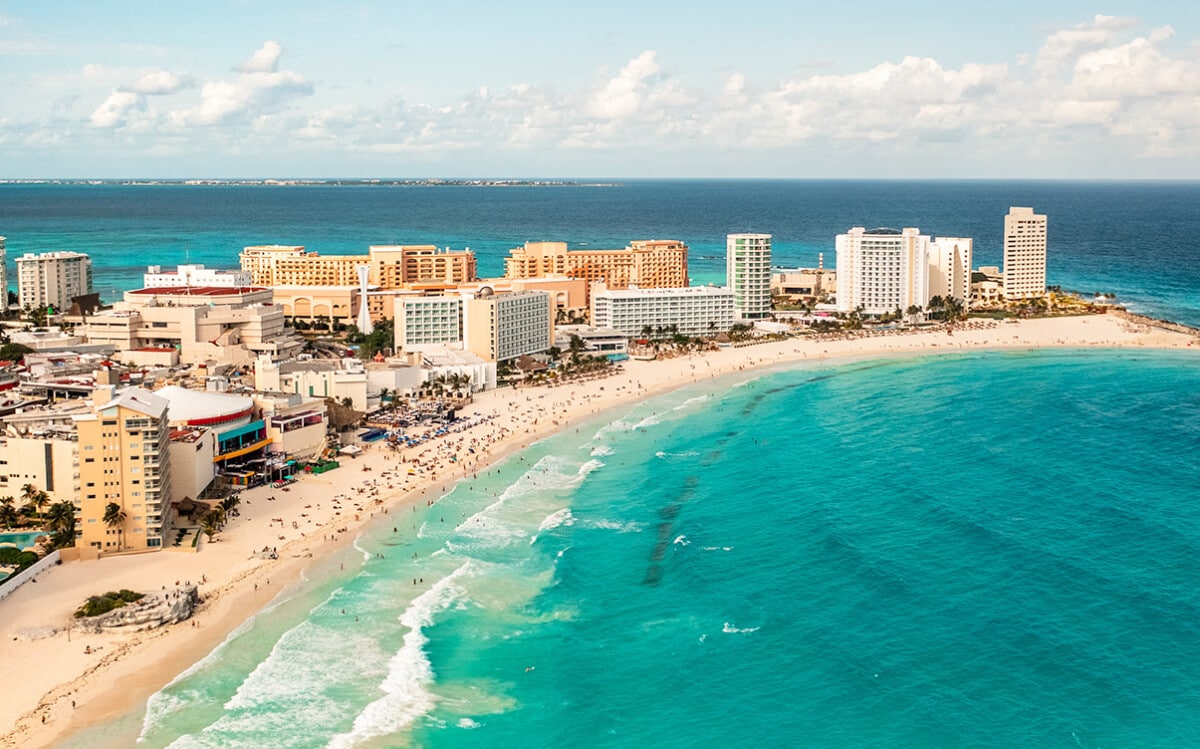
As world travelers, it’s important to be safe when we visit locations we’re not familiar with. That core concept holds true whether you’re going camping in a national forest where bears live, flying out to somewhere in Southeast Asia where cultural norms, laws, and even law enforcement are dramatically different, or just stepping across the border to visit a local “exotic” destination.
There’s a kind of hierarchy to exotic and tropical destinations. The USA itself doesn’t have much beyond something like the Florida Keys, so many of our stereotypical destinations are places like Cancun. It’s barely more than a single step removed from American soil in that it’s such a popular destination you’re as likely to find Americans there on spring break as you are Mexico natives.
At the same time, the news constantly inundates us with how dangerous Mexico is, with roving gangs of criminals, kidnappings and ransoms of tourists, corrupt officials, and so much more. Cancun is in Mexico; is it just as dangerous?
How to Check Cancun Safety
One of the most important resources you can have as a world traveler is the State Department’s website. The State Department advises citizens on the relative safety and advisories that may be in effect for other locations around the world. So, what does it say about Cancun?
Let’s start with Mexico as a whole. According to the State Department, things aren’t looking good:
“Country Summary: Violent crime – such as homicide, kidnapping, carjacking, and robbery – is widespread and common in Mexico. The U.S. government has limited ability to provide emergency services to U.S. citizens in many areas of Mexico, as travel by U.S. government employees to certain areas is prohibited or restricted. In many states, local emergency services are limited outside the state capital or major cities.”
Since U.S. officials can’t visit many areas of Mexico, the State Department also recommends that travelers avoid those areas as well. They have a whole set of recommendations, including using taxi services like Uber and not hailing street taxis, not traveling at night, and not traveling alone.
Each Mexican state is assigned a category. The State Department has four categories:
- Exercise Normal Precautions
- Exercise Increased Caution
- Reconsider Travel
- Do Not Travel
These broadly correspond to safety. Normal Precautions are for areas that are broadly as safe as the safer areas of the USA. Increased Caution is for places where crime is higher but not so bad as to be exceedingly dangerous to most people. Reconsider Travel is the category for areas where crime is much higher, and you may even be targeted specifically because you’re American and could be exploited, scammed, or held for ransom. The Do Not Travel advisory is for areas with extreme threats, whether it’s a complete breakdown of law enforcement or total gang control, extreme levels of targeting against Americans, places where there’s an active war happening, or areas where a disease outbreak makes it very dangerous.
Now, two caveats here. First, this is by state or region, not by city. Cancun is just one city in a larger Mexican state, so even if the state as a whole is dangerous, that doesn’t mean Cancun is. Second, the State Department typically errs on the side of caution because they would rather that you take excessive precautions and not need them than fail to take precautions and fall victim to a crime.
So, where does Cancun fall on this scale? Cancun is part of the Mexican state of Quintana Roo, which is labeled as Exercise Increased Caution. So, it’s not the safest place, but it’s not bad enough to reconsider traveling there at all.
Further down, the State Department also has some more specific information about Quintana Roo:
“Exercise increased caution due to crime.
Criminal activity and violence may occur in any location at any time, including in popular tourist destinations. Travelers should maintain a high level of situational awareness, avoid areas where illicit activities occur, and promptly depart from potentially dangerous situations.
While not directed at tourists, shootings between rival gangs have injured innocent bystanders. Additionally, U.S. citizens have been the victims of both non-violent and violent crimes in tourist and non-tourist areas.
There are no restrictions on travel for U.S. government employees in Quintana Roo state. However, personnel are advised to exercise increased situational awareness after dark in downtown areas of Cancun, Tulum, and Playa del Carmen, and to remain in well-lit pedestrian streets and tourist zones.”
Since Cancun is a popular tourist destination specifically for U.S. Spring Break vacations, the State Department also issued a dedicated statement about travel to Mexico in general, which you can read here. We’re not going to post the whole thing here, of course, but summarizing their tips is pretty easy.
Most of it is general warnings. Crime can happen anywhere, drugs you might have legally in the U.S. are illegal in Mexico (most notably medical marijuana), alcohol can be tainted, beach currents can be strong and dangerous, and lots of violations result in lengthy jail sentences.
As for advice, the State Department has fairly standard tips as well. 911 still works in an emergency but may be Spanish, so either know Spanish or have a Spanish speaker make the call. Get travel insurance coverage for healthcare and emergencies. Limit the cash you carry and check credit statements for unauthorized transactions. It’s all fairly typical for international travel.
Finally, it’s worth putting things into perspective. State-level statistics don’t tell the full story. Cancun has a crime index of 55 from this site. Los Angeles has a 53, Las Vegas has a 55, and Chicago has a 66. Any big city is going to have some level of crime, whether or not it’s likely to affect tourists. Cancun is arguably one of the safest places in Mexico for Americans to travel to.
Mexico gets a lot of income from American tourists coming to destinations like Cancun, and they don’t want to jeopardize that. They’ve taken some significant steps in the last few years to improve safety and security in Cancun, because they want tourists to feel safe enough to keep coming through.
Tips and Advice for Staying Safe in Cancun
Now, at this point, if you were already considering a trip to Cancun, there’s a pretty good chance you were going to go anyway. It’s one of the easiest tropical getaways you can make, and the flights from most major US international airports are not terribly long compared to something like the Maldives or Tahiti.
And hey, we wouldn’t recommend that you go somewhere we wouldn’t. Our honeymoon trip to the Yucatan was an incredible adventure (thanks, Stephen!), and you can read all about it here.
When to Visit Cancun
Always check for immediate travel advisories, but in general, we find that the best time to visit Cancun is during the dry season, which for us is the winter, between November and April.
Spring Break falls at the latter end of this span, so if you want to avoid the biggest crowds of American tourists, head down in November or December. Or, if you’d rather blend in with the crowds as a smokescreen to make yourself less likely to be targeted by criminals, go during spring break. It’s really up to you.
Be Aware of Scams
Any tourist destination is going to have people who want to scam you, either out of your time, your money, or something more.
You might not ever encounter these depending on what you do when you’re there, but some to watch out for include:
- Timeshares. There are plenty of people trying to sell timeshares, offering all sorts of gifts worth thousands of dollars if you just attend a high-pressure sales presentation. Usually, the gifts are legit, but they rely on being able to browbeat you into buying a timeshare, and those are scammy enough to have a whole page about them from the FTC. If you’re at all susceptible to sales pressure, stay away from these.
- Card skimming. This one is familiar even on our home turf, whether it’s at a gas pump, a retail checkout, or an ATM; someone puts a card skimmer over the top of the interface, records your info and pin, and can use your card for fraudulent purchases. Worse, it likely triggers a freeze from your bank and leaves you in a lurch during your trip. Stick to well-lit ATMs, cover your PIN, and use cash when you can (but don’t carry too much; flashing bills around makes you a target, too.)
- Rental car damage scams. These are also common pretty much anywhere disreputable car rental businesses operate. All they do is tell you that the vehicle had some kind of damage when you return it, and charge you for it, even if you didn’t damage it. You can forestall a lot of this by taking photos when you rent the car and return it, so you can prove you didn’t damage it.
- Fake Police. A relatively common scam in Mexico is a fake police officer trying to detain you and accuse you of some crime or another, but they’ll let you go if you just hand over some cash. With stories of police corruption all over the internet, it’s easy to believe it’s real. Generally, it’s a good idea to demand identification and call the local police to verify the identity of an officer before doing anything.
And, of course, there are a variety of typical tourism scams, like cheap trash being marked up to high prices, unexplained fees on bills, and more.
Consider a Resort
One of the biggest choices you have to make on a trip to Cancun is whether you want to stay in an all-inclusive resort or would rather take things piecemeal with a more typical hotel or Airbnb and activities.
An all-inclusive resort will handle everything for you, including rooms, meals, drinks, and even activities, usually picked a la carte from their offerings. They’re generally safer than the surrounding area because they have their own security, and they’re usually quite luxurious.
On the other hand, if you’re cloistering yourself up in a resort, are you really getting the most out of what Cancun has to offer? They’re expensive, limited, and sometimes crowded, and you don’t get any of the local culture, hidden gems, or other adventures you can get. It’s a safe bet, and that’s fine if it’s what you want, but for seasoned adventurers like us, we want something more.
Learn Basic Spanish
You don’t need to be fluent in Mexican Spanish to get around Cancun. As a tourist stop for college kids, you’ll be saturated in English as much as Spanish in the area. If you want to travel between towns, go to more rural areas, or step off the beaten path, though, you can benefit from knowing at least the basics of Spanish.
The Google Translate and Google Lens apps can help a lot with translating signs and other media, as well.
Pack and Prepare
Cancun is a tropical getaway, and even if you’re going during the winter dry season, it’s still going to be pretty warm. Packing for the trip is very important.
- Make sure you have lightweight clothing. Being drenched in sweat or having some polyester blend stuck to your skin is never a pleasant experience.
- Don’t forget the swimwear. You’re in one of the world’s foremost tropical vacation spots, you have to spend time on the beach and in the water!
- Ward off the sun. Sunscreen is an absolute must, and it’s a great idea to have sunglasses, a sunhat, and whatever else helps you deal with it.
- Light rain protection. Even during the dry season, brief rain showers can spring up out of nowhere, and the rainy season is a lot worse about it. Don’t forget waterproof containers for things like your phone, camera gear, and other electronics.
- A towel. Never go anywhere without a good towel.
Don’t forget to pack for the activities you want to do, too. Maybe that means camera gear or even a drone (though be sure to ask about local laws regarding drone usage; some areas restrict it.) Maybe that means a good day pack or backpack and some good footwear for a hike. Maybe it means snorkeling gear. Whatever the case is, while you can certainly find local options to buy it if you need it, it’ll probably be expensive.
Hopefully, this helps both with planning your Cancun getaway and assuaging your fears about how dangerous it is. American media spends a lot of time hyping up how dangerous Mexico is, and while they aren’t exactly lying about many areas, Cancun is one of the safest places you can possibly go in Mexico, so if you’re a seasoned traveler or you’re looking to go somewhere exotic without flying halfway around the world, it’s a great option. Go, have fun, and tell us all about it when you’re back!
You may also enjoy:
